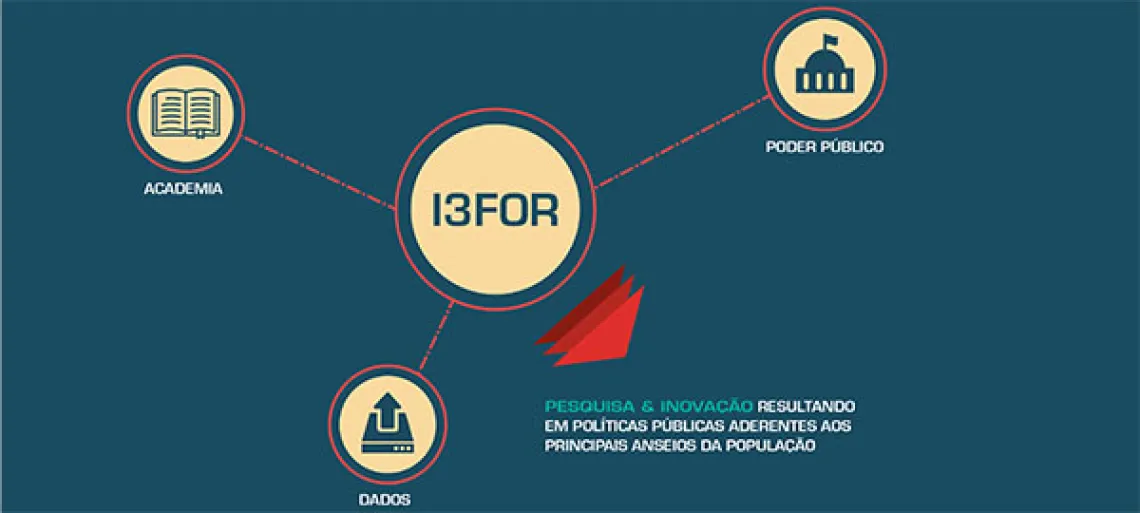UA Project in Brazil Awarded 2015 Gobernate Award

The fifth-largest city in Brazil, which has a University of Arizona alumnus as its mayor and is involved in close collaboration with the UA, has been selected as one of five winners of the 2015 Gobernarte Award, presented by Inter-American Development Banks (IDB).
Fortaleza, the state capital of Ceará, located in northeastern Brazil, was recognized for Smart Fortaleza, an initiative to reduce commuting time and make public transportation more user-friendly by employing big data to analyze the mobility of pedestrians and vehicles.
The Gobernarte Award recognizes the most innovative practices in public administration at the subnational level across Latin America and the Caribbean. The other winners were the cities of São Bernardo do Campo, Brazil; Baruta, Venezuela; Antigua, Guatemala; and Guayaquil, Ecuador.
Roberto Cláudio Rodrigues Bezerra, Fortaleza's mayor since 2012, is only 40 and holds master's and doctoral degrees from the UA's Mel and Enid Zuckerman College of Public Health. He visited the UA campus last June.
Fast-growing Fortaleza has a population of 3.6 million and 21 miles of coastline. In many such developing cities, transportation options are not keeping pace. Roberto Cláudio partnered with the Department of Management Information Systems in the UA's Eller College of Management on a Smart Cities project that combined the expertise of the INSITE Center of Business Intelligence and Analytics at MIS, Fortaleza's Department of Urban Transportation and Mobility, and the University of Fortaleza. Smart Cities is the main component of I3FOR, a new collaboration between the UA and the University of Fortaleza.
During the first phase of the project, INSITE conducted analyses of Fortaleza's public transportation system to understand its usage, with the specific goals of addressing the challenges of overcrowding, delays and public safety.
During the second phase, INSITE developed a performance management dashboard that used scalable machine learning techniques and spatio-temporal models to predict "hot spots" where crimes, overcrowding and delays were likely to occur. These were used to identify the bottlenecks in the transportation system and propose intelligent solutions for efficient urban mobility.
A recent visit by the IDB attempted to identify ways this project could be replicated in other cities around the world. One item of note was the level of commitment in academic and government which is unique to this initiative. The commitment of guidance and support for academic research, ie the participation of institutions such as Unifor and the UA, allow for innovation and progress, and this is something the IDB would like to take to other countries.
"It's a great satisfaction to receive a delegation of the IDB in recognition of the quality of research projects underway between researchers Unifor and University of Arizona, around our I3FOR - International Institute of Innovation Fortaleza - an institute of Unifor. The delegation is meeting researchers, identifying the quality, evaluating achievement and interacting with the projects. It is a great pleasure to receive an award for best practices in research projects, it shows the quality of research at Unifor," said Heraldo Rodrigues the head of the Research Board, Development and Innovation (DFID) of Unifor.
"We have specific demands of urban mobility. We do weekly meetings with the research group of Unifor and the University of Arizona. The combination of these groups enables collaboration. I3For is the facilitator to make this exchange of information project take shape," reiterates the representative of the City of Fortaleza, Ezequiel Dantas.
The IDB expert in Urban Development, Patricio Zambrano, said that this partnership between academia and the government is one of the items that draws attention in proposing solutions to urban problems in Fortaleza.
"Many cities have data, but do not know how to use them, and Fortaleza has thought of an interesting use. It is essential we discuss how these technologies can improve the quality of life", he says. And this is exactly the problem I3For looks to solve.

